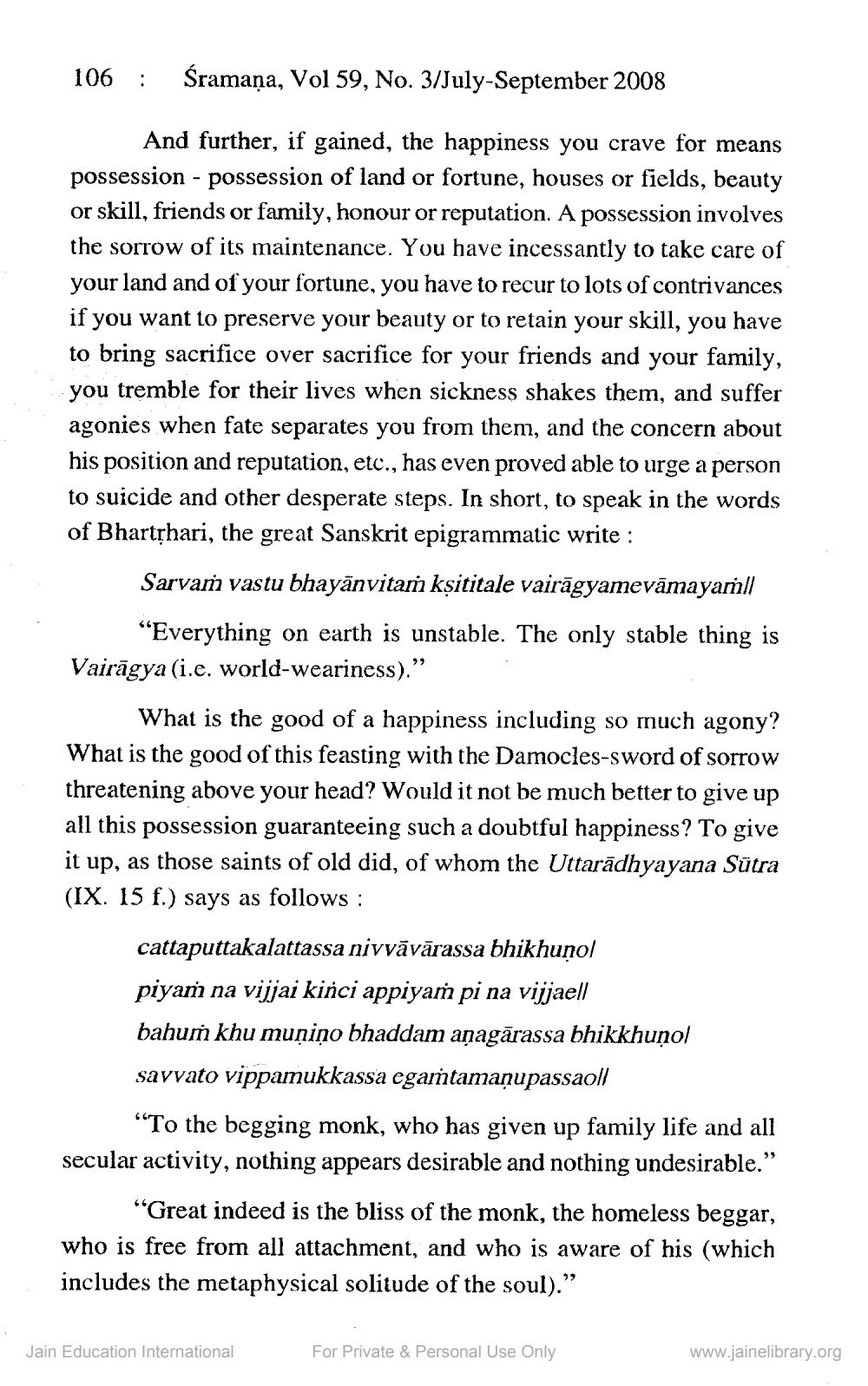________________
106 :
śramaņa, Vol 59, No. 3/July-September 2008
And further, if gained, the happiness you crave for means possession - possession of land or fortune, houses or fields, beauty or skill, friends or family, honour or reputation. A possession involves the sorrow of its maintenance. You have incessantly to take care of your land and of your fortune, you have to recur to lots of contrivances if you want to preserve your beauty or to retain your skill, you have to bring sacrifice over sacrifice for your friends and your family, you tremble for their lives when sickness shakes them, and suffer agonies when fate separates you from them, and the concern about his position and reputation, etc., has even proved able to urge a person to suicide and other desperate steps. In short, to speak in the words of Bhartphari, the great Sanskrit epigrammatic write :
Sarvaṁ vastu bhayānvitam kșititale vairāgyamevāmayam||
“Everything on earth is unstable. The only stable thing is Vairāgya (i.e. world-weariness).”
What is the good of a happiness including so much agony? What is the good of this feasting with the Damocles-sword of sorrow threatening above your head? Would it not be much better to give up all this possession guaranteeing such a doubtful happiness? To give it up, as those saints of old did, of whom the Uttarādhyayana Sūtra (IX. 15 f.) says as follows :
cattaputtakalattassa nivvāvārassa bhikhuņol piyam na vijjai kinci appiyaṁ pi na vijjaell bahum khu muņiņo bhaddam anagārassa bhikkhuņol savvato vippamukkassa egastamaņupassaoll
"To the begging monk, who has given up family life and all secular activity, nothing appears desirable and nothing undesirable.”
"Great indeed is the bliss of the monk, the homeless beggar, who is free from all attachment, and who is aware of his (which includes the metaphysical solitude of the soul)."
Jain Education International
For Private & Personal Use Only
www.jainelibrary.org




